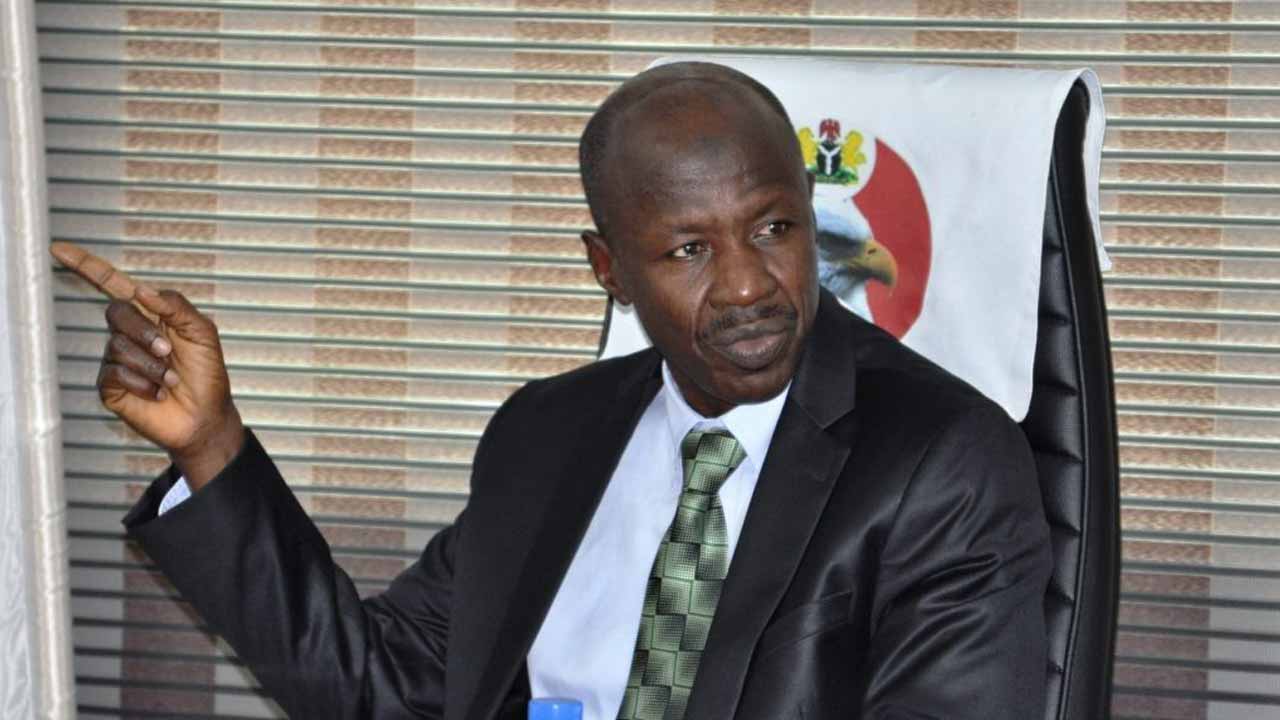- Court to Hear Suit Against Magu on February 13
A Federal High Court in Lagos on Monday fixed February 13 to hear a suit filed against Ibrahim Magu, challenging his continued stay in office as Chairman of the Economic and Financial Crimes Commission.
A lawyer and human rights activist, Ebun-Olu Adegboruwa, had urged the Court to forthwith, restrain Magu, from parading himself as acting chairman of the commission.
In his new suit filed on January 16, Adegboruwa is also asking the Senate not to entertain any further request for the confirmation of Magu as Chairman.
The defendants in the suit are the Senate, the Attorney-General of the Federation, the EFCC and Magu.
When the case was mentioned on Monday, Adegboruwa announced appearance for the plaintiff.
On the other hand, there were no representative for the defendants.
The trial judge, Justice Mojisola Olatoregun consequently, adjourned the suit to Feb. 13 and ordered service of processes on the defendants.
In a 39 paragraphs affidavit deposed to by Adegboruwa, he traced the appointment of Magu back to Nov. 9, 2015, contending that he had been functioning in acting capacity as EFCC Chairman, beyond the six months allowed by law.
Adegboruwa contended in his suit that since the Senate had rejected Magu as substantive chairman of EFCC, he could not thereafter be illegally functioning in acting capacity.
Citing the provisions of section 2 (3) of the EFCC Act, Adegboruwa argued that the section makes confirmation by the Senate, a condition precedent to the appointment of the EFCC chairman.
He argued that since the provision of section 2 (3) of the EFCC Act was activated by forwarding the nomination of Magu to the Senate, he could not defy the decision of the Senate, which rejected him for the substantive appointment.
Adegboruwa stated that notwithstanding the clear decision of the Senate not to confirm Magu, he has continued to parade himself in office as EFCC Chairman.
He said that example of such act was when he met with representatives of the United States Embassy on Jan. 6, 2017, clearly defying the decision of the Senate.
Adegboruwa is therefore, asking the court to restrain the EFCC and all other authorities, from recognizing, treating or in any other manner, dealing with Magu as the Chairman of EFCC, either in acting or substantive capacity.
He also seeks a declaration that given his conduct in office so far, he is not a fit and proper person to function in office as chairman of EFCC.
Consequently, Adegboruwa is asking the court to give an order forthwith directing Magu to vacate and relinquish his office as EFCC Chairman, whether in acting or substantive capacity.
The lawyer also wants the court to declare void, all actions taken by the EFCC under the tenure of Magu, especially charges and information preferred in court.
NAN


 Forex3 weeks ago
Forex3 weeks ago
 Naira2 weeks ago
Naira2 weeks ago
 Billionaire Watch2 weeks ago
Billionaire Watch2 weeks ago



 Naira3 weeks ago
Naira3 weeks ago






 Naira2 weeks ago
Naira2 weeks ago




 Naira1 week ago
Naira1 week ago




 Naira4 weeks ago
Naira4 weeks ago






 Naira1 week ago
Naira1 week ago























